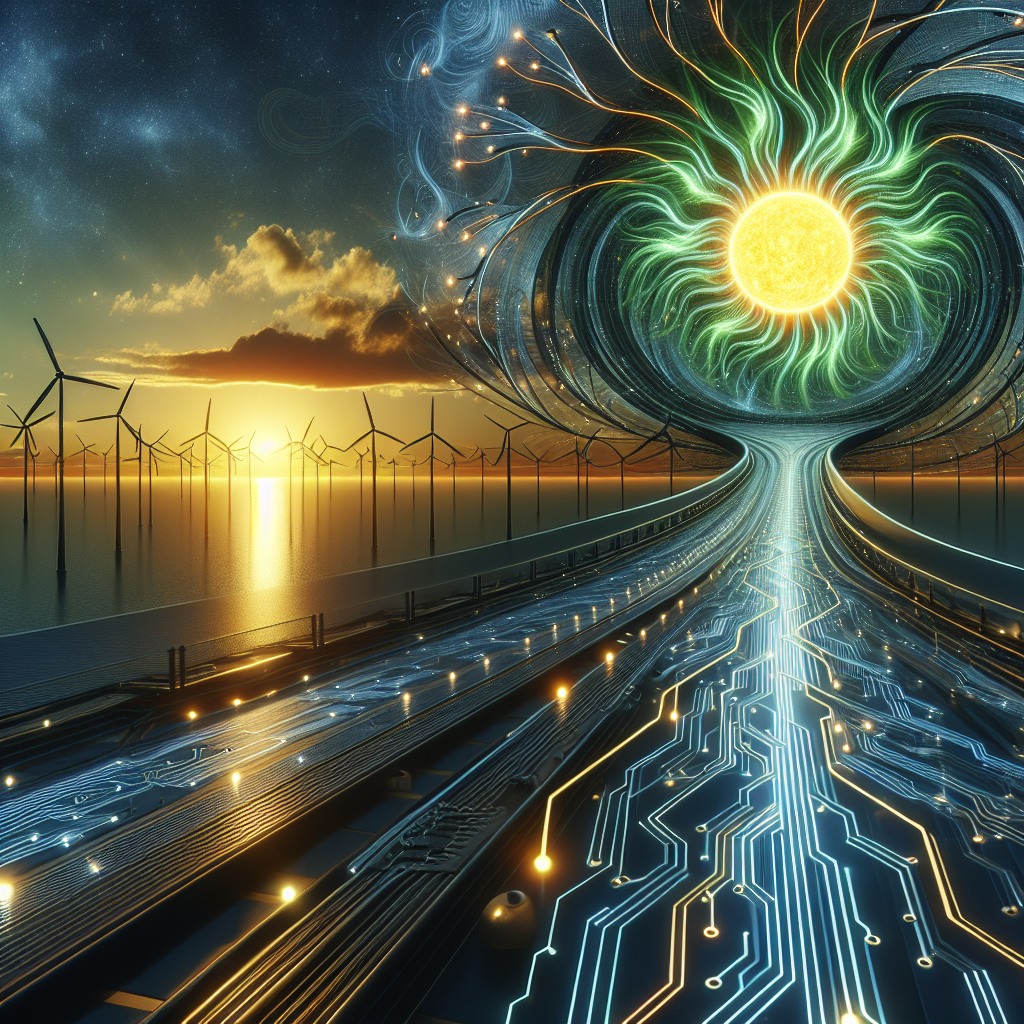Bridging the Gap between AI and Renewable Energy
Artificial Intelligence (AI) and renewable energy are two of the most promising and rapidly advancing technologies of our time. AI has the potential to revolutionize the way we generate and use energy, while renewable energy sources such as solar and wind power offer a sustainable alternative to fossil fuels. By bridging the gap between AI and renewable energy, we can unlock new opportunities for clean and efficient energy production.
AI in Renewable Energy
AI has the potential to significantly improve the efficiency and effectiveness of renewable energy systems. By using AI algorithms to analyze data from renewable energy sources, we can optimize energy production and distribution, reduce costs, and minimize environmental impact. For example, AI can be used to predict weather patterns and adjust the output of solar panels or wind turbines accordingly, maximizing energy production.
AI can also be used to improve the maintenance and monitoring of renewable energy systems. By analyzing data from sensors and other monitoring devices, AI algorithms can detect potential issues before they become serious problems, allowing for proactive maintenance and reducing downtime. This can help to extend the lifespan of renewable energy systems and ensure they operate at peak efficiency.
Another area where AI can make a significant impact in renewable energy is in energy storage. Renewable energy sources such as solar and wind power are intermittent, meaning they are not always available when we need them. AI can help to optimize energy storage systems, such as batteries, to store excess energy when it is abundant and release it when it is needed. This can help to smooth out fluctuations in energy production and ensure a reliable supply of renewable energy.
Challenges and Opportunities
While the potential benefits of AI in renewable energy are significant, there are also challenges that need to be addressed. One of the main challenges is the complexity of integrating AI algorithms into existing renewable energy systems. Many renewable energy systems are decentralized and rely on a combination of different technologies, making it difficult to implement AI solutions across the entire system.
Another challenge is the availability of data. AI algorithms rely on large amounts of data to learn and make accurate predictions. In the case of renewable energy systems, data may be limited or unreliable, making it difficult for AI algorithms to operate effectively. Improving data collection and sharing practices will be essential to harnessing the full potential of AI in renewable energy.
Despite these challenges, there are also significant opportunities for AI in renewable energy. For example, AI can help to optimize the design and operation of renewable energy systems, leading to increased efficiency and cost savings. AI can also help to integrate renewable energy sources into the existing energy grid, reducing reliance on fossil fuels and lowering greenhouse gas emissions.
FAQs
Q: How can AI improve the efficiency of renewable energy systems?
A: AI can improve the efficiency of renewable energy systems by analyzing data from renewable energy sources and optimizing energy production and distribution. For example, AI algorithms can predict weather patterns and adjust the output of solar panels or wind turbines accordingly, maximizing energy production.
Q: What are some of the challenges of integrating AI into renewable energy systems?
A: One of the main challenges is the complexity of integrating AI algorithms into existing renewable energy systems, which are often decentralized and rely on a combination of different technologies. Another challenge is the availability of data, as AI algorithms require large amounts of data to learn and make accurate predictions.
Q: How can AI help to improve the maintenance of renewable energy systems?
A: AI can help to improve the maintenance of renewable energy systems by analyzing data from sensors and other monitoring devices to detect potential issues before they become serious problems. This allows for proactive maintenance and reduces downtime, extending the lifespan of renewable energy systems.
Q: What are some of the opportunities for AI in renewable energy?
A: Some of the opportunities for AI in renewable energy include optimizing the design and operation of renewable energy systems, integrating renewable energy sources into the existing energy grid, and improving energy storage systems. AI can help to increase efficiency, reduce costs, and lower greenhouse gas emissions.

